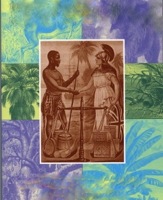Colonialism
Defiinition
- 1 : policies exploiting control by one power over dependent areas or people
Description
Colonialism is the establishment, exploitation, maintenance, acquisition and expansion of colonies in one territory by people from another territory. It is a set of unequal relationships between the colonial power and the colony and between the colonists and the indigenous population.
The European colonial period was the era from the 1500s to the mid-1900s when several European powers (particularly, but not exclusively, Portugal, Spain, Britain, the Netherlands and France) established colonies in Asia, Africa, and the Americas. At first the countries followed mercantilist policies designed to strengthen the home economy at the expense of rivals, so the colonies were usually allowed to trade only with the mother country. By the mid-19th century, however, the powerful British Empire gave up mercantilism and trade restrictions and introduced the principle of free trade, with few restrictions or tariffs.
As colonialism often played out in pre-populated areas, sociocultural evolution included the formation of various ethnically hybrid populations. Colonialism gave rise to culturally and ethnically mixed populations such as the mestizos of the Americas, as well as racially-divided populations such as those found in French Algeria or in Southern Rhodesia. In fact, everywhere where colonial powers established a consistent and continued presence, hybrid communities existed.
The conquest of vast territories brings multitudes of diverse cultures under the central control of the imperial authorities. From the time of Ancient Greece and Ancient Rome, this fact has been addressed by empires adopting the concept of universalism, and applying it to their imperial policies towards their subjects far from the imperial capitol. The capitol, the metropole, was the source of ostensibly enlightened policies imposed throughout the distant colonies.
The empire that grew from Athenian conquest spurred the spread of Greek language, religion, science and philosophy throughout the colonies. The Athenians considered their own culture superior to all others. They referred to people speaking foreign languages as barbarians, dismissing foreign languages as inferior mutterings that sounded to Greek ears like "bar-bar".
Romans found efficiency in imposing a universalist policy towards their colonies in many matters. Roman law was imposed on Roman citizens, as well as colonial subjects, throughout the empire. Latin spread as the common language of government and trade, the lingua franca, throughout the Empire. Romans also imposed peace between their diverse foreign subjects, which they described in beneficial terms as the Pax Romana. The use of universal regulation by the Romans marks the emergence of a European concept of universalism and internationalism. Tolerance of other cultures and beliefs has always been secondary to the aims of empires, however. The Roman Empire was tolerant of diverse cultures and religious practises, so long as these did not threaten Roman authority. Napoleon's foreign minister, Charles Maurice de Talleyrand, once remarked: "Empire is the art of putting men in their place".[1]
